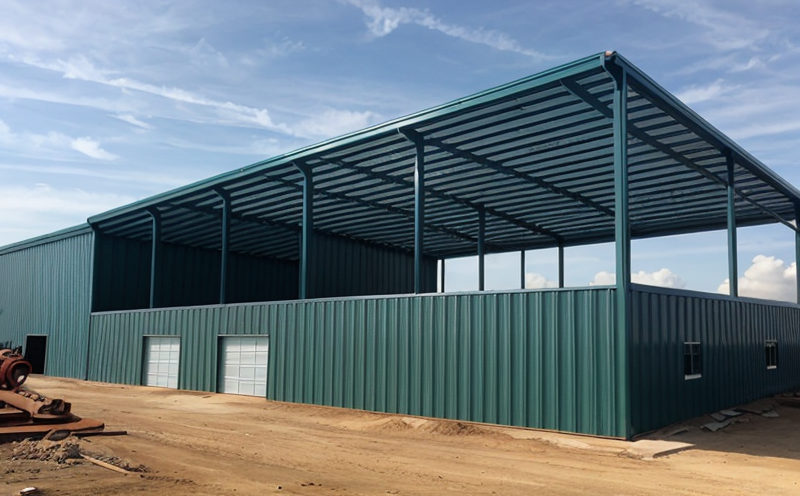ISO 14505 Thermal Comfort and Environmental Testing of Smart Devices
The ISO 14505 standard is a recognized international guideline that provides methods to measure thermal comfort for individuals exposed to environmental conditions. This standard is particularly relevant in the context of smart devices, especially those intended for use within or around homes. At Eurolab, we specialize in ensuring that your smart home and IoT device products meet this critical standard.
The testing process involves a comprehensive evaluation of how thermal comfort is affected by various environmental factors such as temperature, humidity, air movement, and radiant heat. For devices like thermostats, smart lighting systems, and other home automation components, these tests are essential to ensure user satisfaction and compliance with international standards.
Our testing process begins with a detailed understanding of the product's design and intended use case. This allows us to tailor our approach to accurately simulate real-world conditions that the device will encounter. We then proceed with precise environmental chamber setups where we control all parameters relevant to thermal comfort, including temperature fluctuations, humidity levels, and air velocity.
One key aspect of this testing is ensuring that the smart devices perform consistently across different scenarios. For instance, a thermostat should maintain its settings accurately in varying environmental conditions. Our testing ensures not only compliance with ISO 14505 but also provides insights into how well your device will function under these various circumstances.
Another important factor is durability and reliability over time. As smart devices often have long operating lifespans, it's crucial to ensure they remain functional regardless of changes in environmental conditions. Our testing mimics typical usage patterns and extreme environments, providing robust data on product longevity and performance stability.
The results from these tests are meticulously documented and reported according to ISO 14505 guidelines. This documentation serves as a valuable resource for quality managers, compliance officers, R&D engineers, and procurement teams alike. It helps in making informed decisions regarding product improvements or necessary adjustments before market release.
By partnering with Eurolab for ISO 14505 thermal comfort testing of smart devices, you can rest assured that your products will meet the highest standards of quality and reliability. Our experienced team ensures thoroughness and accuracy throughout each stage of the process, from initial consultation to final report generation.
Eurolab Advantages
At Eurolab, we pride ourselves on providing exceptional service for all aspects of smart home and IoT device testing. Here are some reasons why choosing us can benefit your business:
- Comprehensive Expertise: Our team includes experts with deep knowledge in both environmental engineering and electronics, ensuring comprehensive testing.
- State-of-the-Art Facilities: Equipped with the latest technology for precise control over all environmental variables involved in thermal comfort assessment.
- Rigorous Compliance: We adhere strictly to ISO 14505 standards, guaranteeing accurate and reliable results that meet international quality benchmarks.
- Custom Solutions: Tailored testing solutions designed specifically for your product's unique needs and specifications.
- Quick Turnaround Times: Efficient processes allow us to deliver timely reports without compromising on the thoroughness of our tests.
- Cost-Effective: Competitive pricing that provides excellent value without sacrificing quality or service level.
- Supportive Consultation: Our specialists offer valuable advice throughout every stage, helping you optimize your product development process.
- Industry Leadership: Partnering with Eurolab means staying ahead of the curve in terms of technological advancements and regulatory requirements.
Why Choose This Test
The importance of ISO 14505 thermal comfort testing cannot be overstated, especially for smart home products. These devices are often used in close proximity to people, making their performance directly impacting user experience and satisfaction.
A key benefit is enhanced user comfort. By ensuring that your device maintains optimal environmental conditions, you contribute significantly towards creating a pleasant living space for users. This can lead to increased customer loyalty and positive reviews, which are crucial elements in today's competitive market environment.
Compliance with international standards like ISO 14505 also offers significant advantages. Meeting these requirements not only opens up markets but also builds trust among potential customers who value reliability and safety above all else. It demonstrates a commitment to high-quality manufacturing practices, setting your brand apart from competitors.
In addition, successful completion of this type of testing can help avoid costly recalls or product modifications after launch. Early identification of any issues during the development phase allows for timely corrections, saving both time and money in the long run.
Lastly, but certainly not least, proper thermal comfort testing contributes to broader sustainability goals by promoting energy-efficient operations. Efficiently managed environmental controls can reduce unnecessary power consumption, leading to lower operational costs while simultaneously reducing carbon footprints.
Use Cases and Application Examples
The application of ISO 14505 thermal comfort testing extends beyond mere compliance; it plays a vital role in enhancing the functionality and user experience of various smart home products. Below are some specific examples:
Smart Thermostats: Ensuring that your thermostat can accurately maintain temperature settings despite fluctuations in outdoor conditions is crucial for energy efficiency and comfort.
Smarther Lighting Systems: Proper testing ensures that the lighting system adjusts appropriately to changing environmental factors, providing optimal brightness levels at all times.
Ventilation Systems: Testing these systems helps guarantee they operate effectively under diverse climatic conditions, ensuring indoor air quality remains high regardless of external weather patterns.
Smart Windows and Doors: Verification that these components maintain appropriate thermal insulation properties is essential for maintaining a comfortable room temperature while reducing heating/cooling costs.
Automated Irrigation Systems: Even though not directly related to indoor environments, automated irrigation systems can benefit from such testing if they are integrated into smart home ecosystems where climate plays a significant role in their operation.
Smart Lighting and Appliances: Ensuring that these devices function correctly under all possible environmental conditions is vital for providing reliable service to users.





